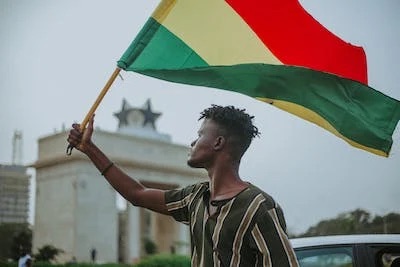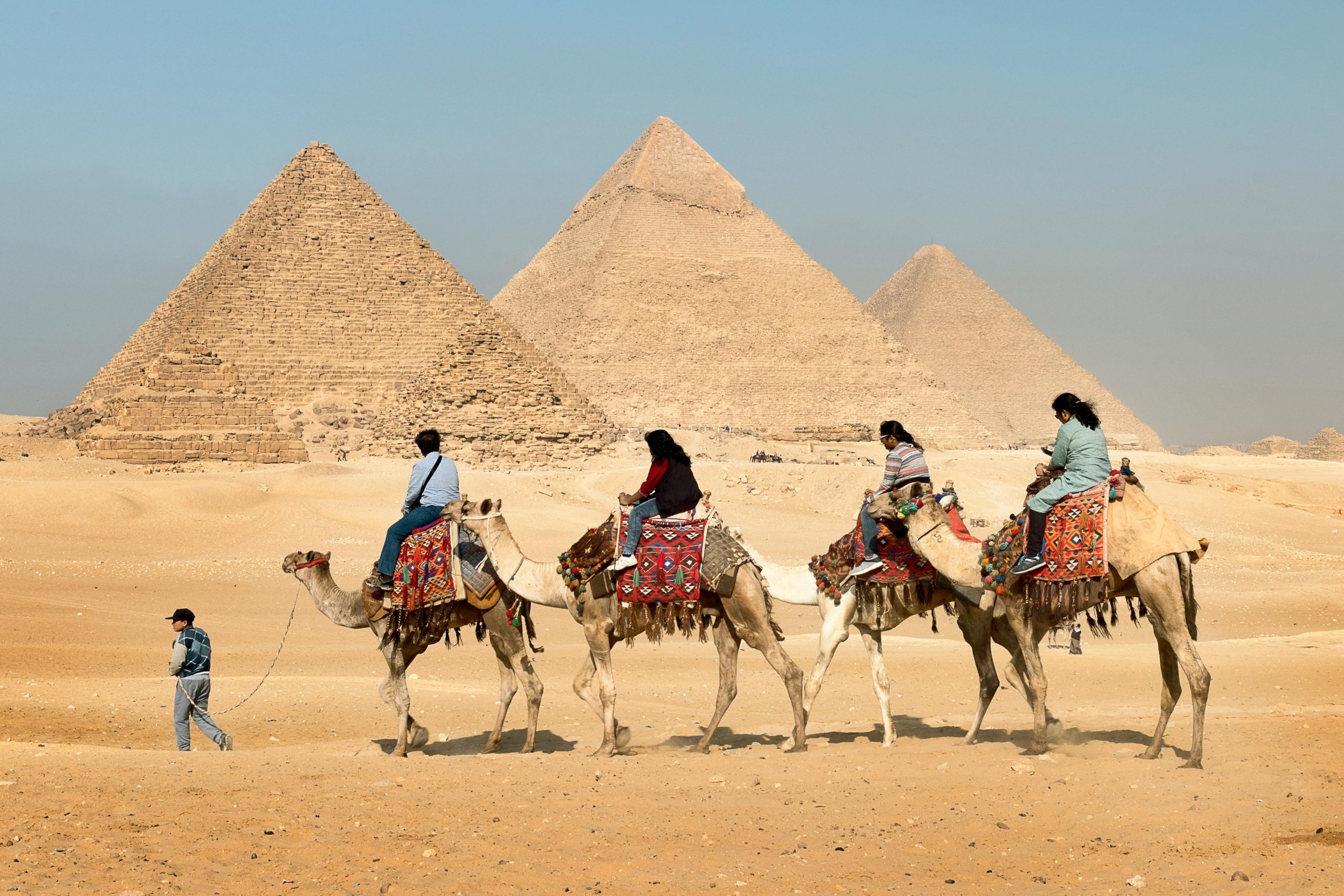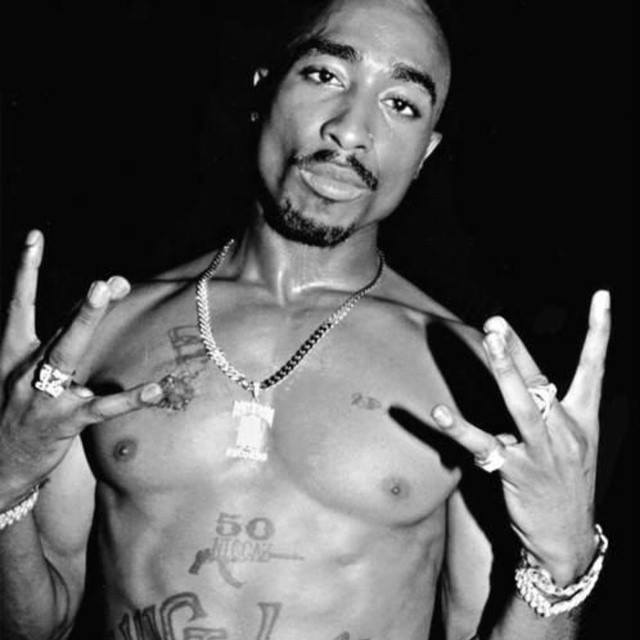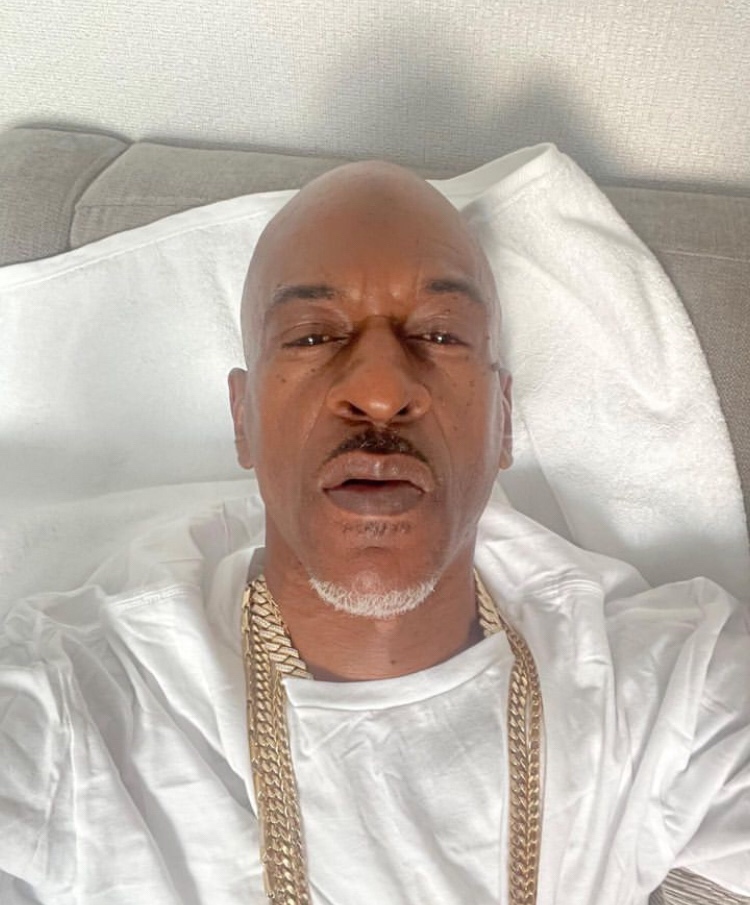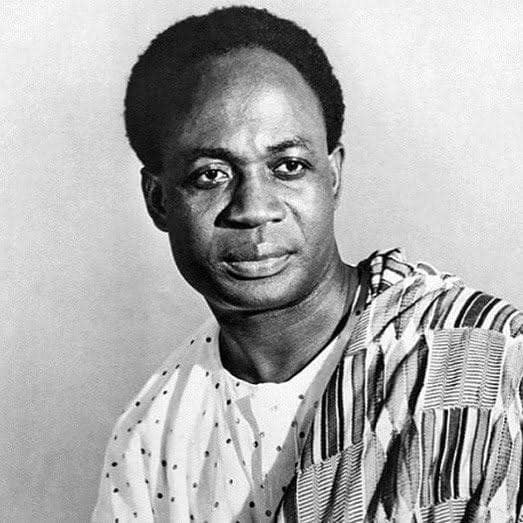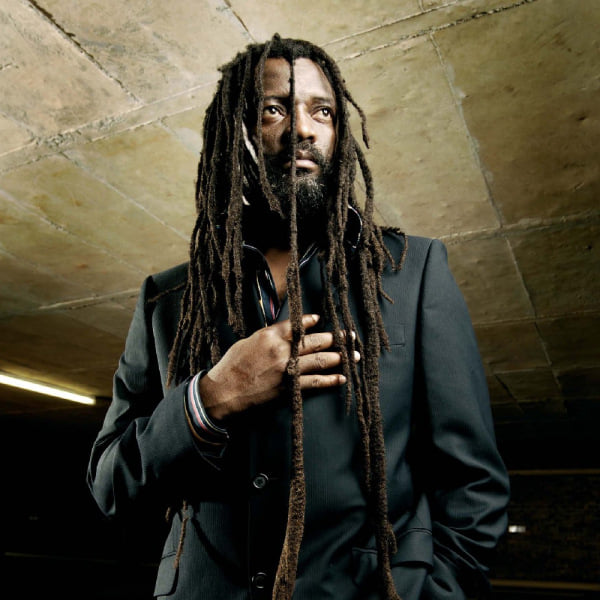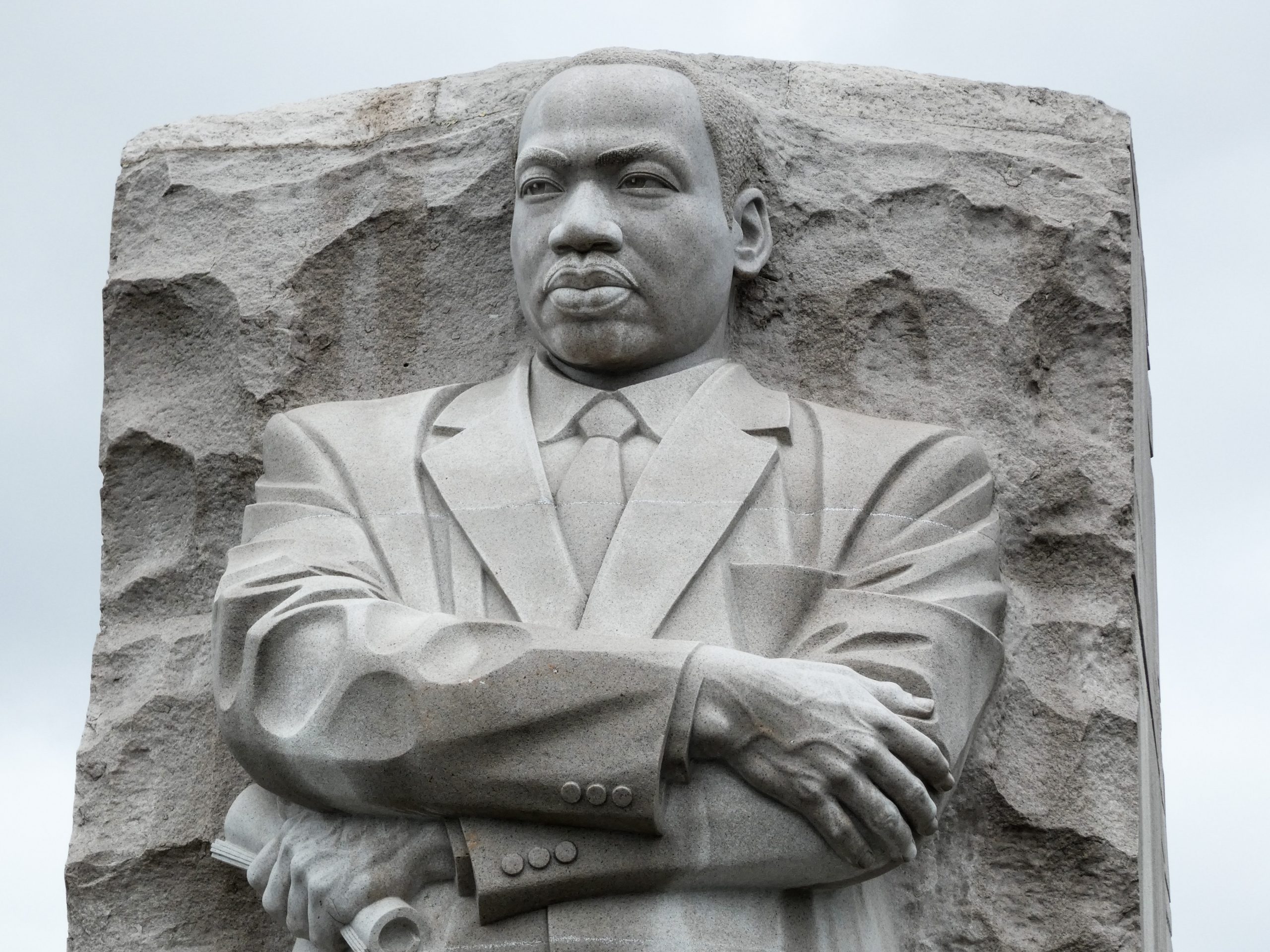
10 Famous Black People
Black people, also referred to as African Americans or Afro-descendants, are individuals who have African ancestry. They are part of a diverse racial and ethnic group with a rich history and cultural heritage. Black people have contributed significantly to various fields, including arts, sciences, sports, politics, and social justice movements.
Throughout history, black people have faced systemic discrimination, racism, and inequality in many parts of the world, including the United States. They have fought for civil rights, equal treatment, and social justice, making significant strides towards equality. Prominent figures such as Martin Luther King Jr., Rosa Parks, Malcolm X, and Nelson Mandela have played pivotal roles in advocating for racial justice and inspiring change.
It is important to recognize that black people are not a monolithic group, as they come from diverse backgrounds and have unique experiences. Their cultures, languages, and traditions vary across different regions and countries. Black people have a rich cultural heritage rooted in Africa, which has influenced various aspects of global culture, including music, dance, fashion, cuisine, and literature.
It is crucial to promote inclusivity, equality, and respect for all individuals, regardless of their race or ethnicity. Recognizing and celebrating the contributions and diversity of black people is an essential step towards building a more equitable and inclusive society.
There have been numerous influential and notable black people throughout history in various fields including politics, science, literature, sports, entertainment, and civil rights activism.
Here are just a few examples:
1. Martin Luther King Jr.
Martin Luther King Jr. (January 15, 1929 – April 4, 1968) was an influential civil rights leader and Baptist minister. He is best known for his role in advancing civil rights using nonviolent civil disobedience based on his Christian beliefs. King played a pivotal role in the American civil rights movement, advocating for racial equality and justice for African Americans.
King was born in Atlanta, Georgia, and grew up in a middle-class family. He attended Morehouse College, where he became involved in the civil rights movement and embraced the teachings of Mahatma Gandhi on nonviolent protest. After earning his doctorate in systematic theology from Boston University, he returned to the South to lead the civil rights movement.
One of King’s most notable achievements was his leadership in the Montgomery Bus Boycott in 1955. The boycott was sparked by the arrest of Rosa Parks, an African American woman who refused to give up her seat on a segregated bus. The protest lasted for over a year and eventually led to a Supreme Court ruling that declared segregation on public buses unconstitutional.
King went on to organize and lead numerous peaceful protests and demonstrations across the United States. He delivered his famous “I Have a Dream” speech during the historic March on Washington for Jobs and Freedom in 1963. The speech called for an end to racism and discrimination, and it became one of the most iconic speeches in American history.
In addition to his activism, King was also involved in organizing the Southern Christian Leadership Conference (SCLC), a civil rights organization that aimed to coordinate and support nonviolent protests. He advocated for voting rights, desegregation, and economic justice for African Americans.
Tragically, King was assassinated on April 4, 1968, in Memphis, Tennessee. His death resulted in a wave of riots and protests across the country. Despite his untimely death, King’s legacy and teachings continue to inspire generations of people fighting for equality, justice, and human rights. He was posthumously awarded the Presidential Medal of Freedom and the Congressional Gold Medal, and in 1986, Martin Luther King Jr. Day was established as a federal holiday in the United States to honor his contributions to the civil rights movement.
2. Kwame Nkrumah

Kwame Nkrumah (1909-1972) was a Ghanaian politician, pan-Africanist, and statesman who played a significant role in the independence movement of Ghana and the decolonization of Africa. He is widely regarded as one of the most influential African leaders of the 20th century.
Nkrumah was born on September 21, 1909, in Nkroful, Gold Coast (present-day Ghana). He was educated in mission schools and later attended Achimota College, where he became interested in politics and Pan-Africanism. Nkrumah furthered his education in the United States, earning a bachelor’s degree from Lincoln University and a master’s degree in education from the University of Pennsylvania.
In 1947, Kwame Nkrumah returned to the Gold Coast, where he became involved in nationalist politics. He founded the Convention People’s Party (CPP) in 1949, which aimed to achieve self-government and independence for Ghana. Nkrumah’s powerful oratory skills and charismatic leadership quickly gained him popularity among the Ghanaian people.
Nkrumah led Ghana to independence from British colonial rule on March 6, 1957, becoming the country’s first Prime Minister. He continued to push for further decolonization and Pan-African unity. In 1960, Ghana became a republic, and Nkrumah became its first President. He pursued an ambitious agenda of rapid industrialization and social programs, aiming to transform Ghana into a modern and self-reliant nation.
Nkrumah advocated for African unity and played a key role in the formation of the Organization of African Unity (OAU) in 1963, which later became the African Union (AU). He believed that the liberation of Ghana and other African nations was inseparable from the liberation of the entire continent.
However, Nkrumah’s government faced economic challenges and increasing political opposition. In 1966, while Nkrumah was on a state visit to China, a military coup led by the National Liberation Council overthrew his government. Nkrumah lived in exile in Guinea until his death on April 27, 1972.
Kwame Nkrumah’s legacy remains significant. He is remembered as a leading figure in the struggle for African independence, a staunch advocate for Pan-Africanism, and a visionary leader who sought to uplift his people and promote unity among African nations. His ideas and writings continue to inspire generations of Africans and contribute to discussions on African nationalism, development, and liberation.
3. Barack Obama

Barack Obama is an American politician and lawyer who served as the 44th President of the United States from 2009 to 2017. He was born on August 4, 1961, in Honolulu, Hawaii. Obama is a member of the Democratic Party and made history as the first African American to hold the presidency.
Before becoming president, Obama had a diverse background. He graduated from Columbia University in 1983 and went on to attend Harvard Law School, where he became the first African American president of the Harvard Law Review. After law school, he worked as a civil rights attorney and taught constitutional law at the University of Chicago.
Obama’s political career began in 1996 when he was elected to the Illinois State Senate, where he served for eight years. In 2004, he gained national prominence with his keynote speech at the Democratic National Convention. Two years later, he was elected to the United States Senate, representing Illinois.
In the 2008 presidential election, Barack Obama ran a successful campaign, defeating Republican nominee John McCain. He was inaugurated as president on January 20, 2009. During his presidency, Obama implemented several significant policies, including the Affordable Care Act (commonly known as Obamacare), the economic stimulus package to address the Great Recession, the Dodd-Frank Wall Street Reform and Consumer Protection Act, and the Paris Agreement on climate change.
Obama was reelected in 2012, defeating Republican candidate Mitt Romney. Throughout his presidency, Obama faced various domestic and international challenges, including the withdrawal of US troops from Iraq, the killing of Osama bin Laden, the passage of the Iran nuclear deal, and efforts to improve relations with Cuba.
After leaving office, Obama has remained active in public life. He has written several books, including his memoir “Dreams from My Father” and “The Audacity of Hope.” Additionally, he and his wife, Michelle Obama, have established the Obama Foundation, which aims to inspire and empower people to create change in their communities.
Barack Obama’s presidency is often noted for its historic significance, his emphasis on diplomacy and multilateralism, and his efforts to expand access to healthcare. He remains a prominent figure in American politics and continues to have a significant impact on public discourse.
4. Oprah Winfrey

Oprah Winfrey is an American media executive, talk show host, actress, producer, and philanthropist. She was born on January 29, 1954, in Kosciusko, Mississippi, United States.
Winfrey is best known for hosting “The Oprah Winfrey Show,” which was the highest-rated television program of its kind in history. The talk show aired for 25 seasons, from 1986 to 2011, and won numerous awards. It featured a wide range of topics, including interviews with celebrities, discussions on social issues, and self-improvement segments.
Aside from her talk show, Oprah Winfrey has ventured into various other media and business ventures. She founded Harpo Productions, which produced popular films and television shows. Winfrey has acted in several films, including “The Color Purple,” for which she received an Academy Award nomination.
Winfrey is also known for her philanthropy. She has donated to numerous charitable causes and established the Oprah Winfrey Leadership Academy for Girls in South Africa. Through her book club, Oprah’s Book Club, she has promoted reading and literacy.
Throughout her career, Oprah Winfrey has been recognized for her contributions to the entertainment industry and her philanthropic efforts. She has received numerous awards and accolades, including the Presidential Medal of Freedom, the highest civilian honor in the United States.
Please note that the above information reflects Oprah Winfrey’s achievements and status up until my last knowledge update in September 2021. There may have been additional developments or activities since then.
READ ALSO: Bobiri Butterfly Sanctuary In Ghana
5. Maya Angelou
Maya Angelou (1928-2014) was an acclaimed American poet, memoirist, and civil rights activist. She was born on April 4, 1928, in St. Louis, Missouri, as Marguerite Annie Johnson. Angelou’s childhood was marked by adversity and trauma. At the age of eight, she was sexually assaulted by her mother’s boyfriend, and as a result, she became selectively mute for several years, believing her voice had caused the man’s death.
Angelou’s love for literature and the power of words helped her overcome her silence, and she developed a deep passion for poetry and storytelling. She began to express herself through her writing, exploring themes of identity, race, and the human experience. Her literary works often reflected her personal struggles and the triumph of the human spirit.
One of Angelou’s most well-known works is her autobiography, “I Know Why the Caged Bird Sings,” published in 1969. The book chronicles her early years, including the challenges she faced growing up in the racially segregated South. The memoir received critical acclaim and became a bestseller, launching Angelou’s career as an author.
Throughout her life, Angelou published several volumes of poetry, including “Just Give Me a Cool Drink of Water ‘fore I Diiie” (1971), “And Still I Rise” (1978), and “Shaker, Why Don’t You Sing?” (1983). Her poetry was often characterized by its lyrical style, rhythm, and powerful messages of resilience and empowerment.
In addition to her literary achievements, Maya Angelou was actively involved in the civil rights movement. She worked alongside prominent figures such as Martin Luther King Jr. and Malcolm X, using her voice to advocate for social justice and equality. Angelou’s poetry and speeches became known for their ability to inspire and motivate, making her a prominent figure in American culture.
Maya Angelou’s contributions to literature and her activism earned her numerous accolades and honors. She received over 50 honorary degrees and was the first African American woman to have her screenplay, “Georgia, Georgia” (1972), produced as a feature film. In 2010, Angelou was awarded the Presidential Medal of Freedom, the highest civilian honor in the United States, by President Barack Obama.
Maya Angelou passed away on May 28, 2014, at the age of 86. Her legacy continues to inspire and influence generations of writers, artists, and activists who appreciate her indomitable spirit, resilience, and profound contributions to literature and social change.
6. Nelson Mandela
Nelson Mandela (1918-2013) was a South African anti-apartheid revolutionary, political leader, and philanthropist. He is widely regarded as one of the most iconic and inspirational figures in recent history.
Mandela was born on July 18, 1918, in the village of Mvezo in the Eastern Cape of South Africa. He became involved in anti-colonial politics during his university years and joined the African National Congress (ANC) in 1944. As an ANC leader, he advocated for nonviolent resistance against the apartheid regime, which enforced a system of racial segregation and discrimination in South Africa.
Mandela’s activism led to his imprisonment in 1962, and he spent a total of 27 years in prison, most of which were served on Robben Island. Despite his imprisonment, Mandela continued to be a symbol of resistance and hope for the oppressed in South Africa. His release in 1990 marked a turning point in the country’s history and set the stage for negotiations to end apartheid.
In 1994, South Africa held its first multiracial democratic elections, and Mandela became the country’s first black president, serving from 1994 to 1999. As president, he focused on dismantling apartheid’s legacy, promoting reconciliation among different racial groups, and addressing social and economic inequalities.
Mandela’s leadership and commitment to justice earned him international acclaim. He received numerous honors, including the Nobel Peace Prize in 1993, for his efforts in ending apartheid and fostering reconciliation. Mandela used his influence and stature to advocate for human rights, peace, and social justice not only in South Africa but also globally.
After his presidency, Mandela dedicated himself to philanthropy, establishing the Nelson Mandela Foundation, which focuses on promoting education, rural development, and HIV/AIDS prevention. He remained an influential figure until his death on December 5, 2013, at the age of 95.
Nelson Mandela’s legacy continues to inspire people worldwide, reminding us of the power of forgiveness, reconciliation, and the fight against injustice. His life and struggle are a testament to the resilience and strength of the human spirit in the face of adversity.
7. Serena Williams
Serena Williams is a renowned professional tennis player from the United States. She was born on September 26, 1981, in Saginaw, Michigan. Serena, along with her sister Venus Williams, has had an incredible impact on the sport of tennis and is considered one of the greatest female tennis players of all time.
Serena Williams turned professional in 1995 at the age of 14 and has since achieved numerous milestones and records throughout her career. She has won a total of 23 Grand Slam singles titles, which is the most in the Open Era and second-most overall in the history of tennis. These victories include seven Australian Open titles, three French Open titles, seven Wimbledon titles, and six US Open titles.
In addition to her success in singles, Serena has also excelled in doubles competitions with her sister Venus. Together, they have won 14 Grand Slam doubles titles, making them one of the most successful doubles teams in tennis history.
Serena Williams is known for her powerful playing style, athleticism, and mental toughness on the court. She has inspired many with her determination, resilience, and ability to dominate matches against top-ranked opponents. Her impact extends beyond the sport, as she has been an influential figure for women and people of color in breaking barriers and achieving success in tennis.
Throughout her career, Serena has faced various challenges, including injuries and personal setbacks, but she has always managed to make a comeback and continue to compete at the highest level. Her contributions to tennis have earned her widespread recognition and numerous accolades, including being named the Women’s Tennis Association (WTA) Player of the Year multiple times.
Off the court, Serena Williams is known for her advocacy work, fashion endeavors, and business ventures. She has been a vocal advocate for gender equality and has used her platform to address social issues. Serena has also launched her own fashion line and has been involved in various philanthropic efforts.
As of my knowledge cutoff in September 2021, Serena Williams was still an active player in the professional tennis circuit. However, please note that the information may have changed since then, so it’s advisable to check for the most recent updates on Serena Williams’ career.
8. Muhammad Ali
Muhammad Ali, born Cassius Marcellus Clay Jr. on January 17, 1942, and passing away on June 3, 2016, was an American professional boxer and one of the most iconic and influential figures in the history of sports. He is widely regarded as one of the greatest heavyweight boxers of all time.
Ali’s boxing career spanned from 1960 to 1981, during which he achieved numerous accomplishments and accolades. He won an Olympic gold medal in the light heavyweight division at the 1960 Rome Olympics and turned professional later that year. In 1964, he became the world heavyweight champion by defeating Sonny Liston in a major upset. Shortly after, he announced his conversion to Islam and changed his name to Muhammad Ali.
Known for his extraordinary speed, agility, and footwork, Ali developed a unique fighting style that combined graceful movement with lightning-fast punches. He employed tactics like “float like a butterfly, sting like a bee” to outmaneuver his opponents. Ali had a remarkable boxing career, with notable victories against heavyweight legends such as Joe Frazier, George Foreman, and Ken Norton.
Beyond his boxing achievements, Ali was also recognized for his charismatic personality and his outspokenness on social and political issues. He refused to be drafted into the Vietnam War based on his religious and moral beliefs, leading to a highly publicized legal battle and a temporary suspension from boxing. Ali’s stand against the war resonated with many and solidified his image as a symbol of resistance and defiance.
In his later years, Ali was diagnosed with Parkinson’s disease, which gradually affected his motor skills and speech. Despite his health challenges, he remained an inspirational figure and a global ambassador for peace and humanitarian causes. Muhammad Ali passed away on June 3, 2016, leaving behind a remarkable legacy as both a sporting legend and a cultural icon.
9. Harriet Tubman
Harriet Tubman was an African-American abolitionist, humanitarian, and Union spy during the American Civil War. She was born into slavery in Maryland around 1822, and at the age of 29, she escaped slavery and became one of the most prominent conductors of the Underground Railroad, a network of safe houses and routes that helped enslaved people escape to free states and Canada.
Tubman made numerous dangerous missions to the South, personally leading approximately 70 enslaved individuals, including family and friends, to freedom. She became known as “Moses” among the people she helped, in reference to the biblical figure who led the Israelites out of slavery in Egypt. Tubman’s unwavering determination, courage, and resourcefulness made her a highly respected figure in the abolitionist movement.
During the Civil War, Tubman served as a nurse, cook, and spy for the Union Army. She worked as a spy in South Carolina, gathering information about Confederate military activities. Her intelligence and ability to navigate enemy territory proved invaluable to the Union war effort.
After the war, Tubman continued to fight for the rights of African Americans and women. She advocated for suffrage and equal rights, and she established a home for elderly African Americans in New York.
Harriet Tubman’s life and legacy have had a significant impact on American history. Her efforts to free enslaved people, her role in the Underground Railroad, and her contributions during the Civil War make her an important figure in the fight for freedom and equality. She is remembered as a symbol of strength, resilience, and determination in the face of adversity. In recognition of her contributions, Tubman’s image is set to appear on the redesigned $20 bill in the United States, making her the first African American woman to be featured on U.S. currency.
10. Frederick Douglass
Frederick Douglass (c. 1818 – 1895) was an influential African-American abolitionist, writer, orator, and social reformer. He was born into slavery in Maryland, but escaped to the North in 1838, where he became a prominent advocate for the abolition of slavery and equal rights for African Americans.
Douglass is best known for his powerful autobiographical works, including his first autobiography, “Narrative of the Life of Frederick Douglass, an American Slave” (1845). In this book, he recounted his experiences as a slave and the brutalities he endured, which had a significant impact on public opinion and fueled the abolitionist movement.
Douglass became a renowned orator and traveled extensively, giving speeches and lectures on the subject of slavery and racial inequality. He was a skilled communicator and used his own story to convey the inhumanity of slavery and the urgency for its abolition. Douglass believed in the power of education and self-improvement and advocated for equal access to education for all.
During the American Civil War, Douglass actively campaigned for the Union cause and urged President Abraham Lincoln to emancipate slaves, leading to the issuance of the Emancipation Proclamation in 1862. After the Civil War, he continued to fight for civil rights and suffrage for African Americans.
Douglass held several government positions, including serving as U.S. Marshal for the District of Columbia and Minister to Haiti. He also played a significant role in the women’s suffrage movement and worked alongside prominent suffragists such as Susan B. Anthony and Elizabeth Cady Stanton.
Frederick Douglass’s legacy extends beyond his lifetime. His writings and speeches continue to be studied and celebrated for their eloquence and passion in advocating for human rights and equality. His contributions to the abolitionist movement and his dedication to social justice make him one of the most important figures in American history.
Please note that this is not an exhaustive list, and there are many more famous and influential black individuals who have made significant contributions to various fields and have impacted society in meaningful ways.

